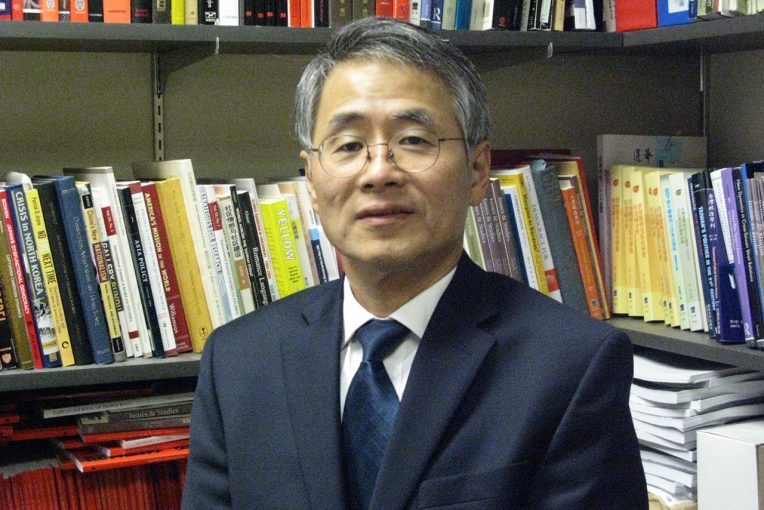Of all the hot spots for potential global conflict, the relationship between Taiwan and China consistently tops the list. While media accounts tend to focus on the ebbs and flows of tensions between the two states, Illinois State Professor T.Y. Wang wants to dig deeper. One overlooked but important dimension of the conflict, he said, concerns how ordinary citizens in Taiwan see the situation.
So what do Taiwan’s citizens think of China? It’s complicated, according to Wang, professor and chair of the Department of Politics and Government.
Wang’s research agenda has examined the question from many angles. His most recent published work is a book chapter entitled “Taiwan Citizens’ Views on Cross-Strait Relations: Pragmatic But Ambivalent.” The chapter is part of National Security, Public Opinion and Regime Asymmetry: A Six Country Study. The book, edited by T.J. Cheng and Wei-chin Lee and published this year in New Jersey by World Scientific, employs survey data collected during the past two decades in order to trace Taiwan citizens’ attitudes towards the island’s relationship with China. Moreover, according to Wang, it’s important to understand how these views affect government policies.
Contemporary China represents opportunities of economic prosperity, while at the same time the majority of the Taiwan residents see the authoritarian China as the only security threat to their democratic way of life.—T.Y. Wang
The study, he explains, shows that Taiwan has a multifaceted relationship with China. For many island citizens, the historical China symbolizes the root of their cultural heritage. For others, the contemporary China represents opportunities of economic prosperity, while at the same time the majority of the Taiwan residents see the authoritarian China as the only security threat to their democratic way of life and the island country’s status as an independent state.
These complex connections with China have made the cross-strait relationship the most salient issue in the island country’s politics. Taiwan citizens’ ambivalence about a China that is ruled by the Chinese Communist Party is therefore manifested in their pragmatic but seemingly contradictory policy stands.

